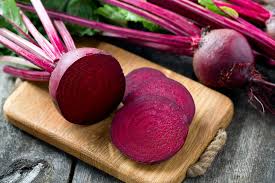The Double-Edged Sword of Beetroot: Unlocking its Power for Kidney Health

Beetroot, a vibrant superfood, has been gaining attention for its potential benefits on kidney health. Packed with essential nutrients, beetroot supports heart health, boosts energy, and helps fight inflammation. However, individuals with kidney issues need to approach beetroot consumption with caution.
The Benefits of Beetroot for Kidney Health
1. Lower Blood Pressure: Beetroot’s nitrates help relax blood vessels, improving blood flow and reducing strain on the kidneys.
2. Antioxidant Properties: Beetroot’s antioxidants, such as betalains, protect kidney cells from oxidative stress and inflammation.
3. Improved Circulation: Beetroot’s nitrates improve blood flow, ensuring kidneys receive adequate oxygen and nutrients.
Potential Risks and Considerations
1. High Oxalate Content: Beetroot’s oxalates can contribute to kidney stone formation, particularly in susceptible individuals.
2. Potassium Content: Beetroot is high in potassium, which can be problematic for individuals with advanced kidney disease.
3. Interactions with Medications: Beetroot may interact with certain medications, such as blood thinners and blood pressure medications.
Incorporating Beetroot into Your Diet Safely
1. Consult Your Doctor: Before making significant dietary changes, consult with your healthcare provider.
2. Moderation is Key: Enjoy beetroot in moderation, especially if you have kidney issues.
3. Preparation Methods: Boiling or steaming beetroot can reduce oxalate content.
4. Balance Your Diet: Pair beetroot with low-potassium foods to maintain a balanced diet.
Conclusion
Beetroot can be a nutritious addition to a kidney-friendly diet when consumed responsibly. While it offers potential benefits, individuals with kidney issues must be aware of the potential risks and take necessary precautions. By understanding the benefits and drawbacks, you can make informed choices to support your kidney health.

























Comments
This post currently has no comments.